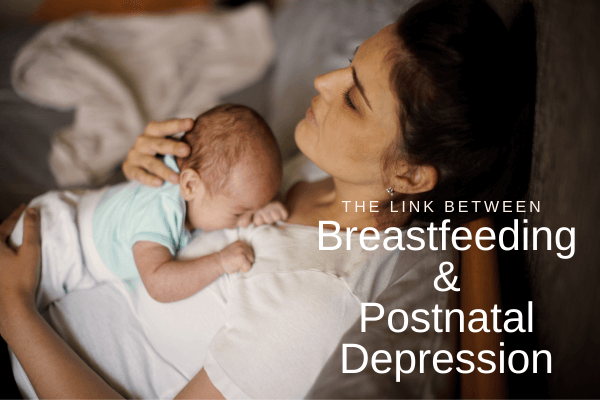Do you remember the beautiful scene from the TV series FRIENDS where all the six friends gather around baby Ben saying silly things?
“Look, he is closing his eyes!”
“He doesn’t do much, does he?”
“Ben…Ben…!”
Did you ever wonder where mum Carol was? Probably catching on some sleep. Naturally, everyone’s attention was now shifted from Carol to baby Ben.
You might remember the first time you found out you were pregnant, maybe when you saw the line on the pregnancy test or felt the first pregnancy symptoms. Then came the roller coaster of the nine months of pregnancy followed by labour and birth. When the baby is finally out, you will be, well, many things – exhilarated, relieved, sad, happy! But one important change that you will invariably notice is the shift in the focus. The baby is now the centre of attention, not just for others but for you too. This shift in focus often means insufficient care for the new mom during the crucial postnatal recovery period. The impact of this can persist not just in the short term for decades after.
Let’s start with understanding some basics:
What is the postnatal time period?
The postpartum period begins after birthing and is typically considered to go up to 6-8 weeks after birth. This is an intense period of recovery and the organs and systems are generally considered to have returned to the pre pregnancy state by this time period. It is also called the “fourth trimester”.
In reality for most mothers the recovery period extends beyond the 6-8 weeks. In recognition of this, the perinatal care community describes the postnatal period as a longer period made up of 3 contiguous stages: the initial or acute period involves the first 6–12 hours postpartum, the second phase is the subacute postpartum period, which lasts 2–6 weeks, the third phase is the delayed postpartum period, which can last up to 6 months.
What is postnatal care?
After giving birth, mothers and newborns need postnatal care. Postnatal care involves checking vital signs, giving advice on breastfeeding, nutrition, hygiene, rest and infant care, encouraging birth registration and immunization for the newborn, and helping and watching for any complications or infections. Postnatal care can be given at home or at a health facility, depending on what the mother wants and needs. The World Health Organization (WHO) advises at least four postnatal visits within the first six weeks of birth.
Why is postnatal care important?
WHO recommends that the mother receive postnatal care for at least the first 6 weeks after childbirth. A majority of maternal and neonatal deaths happen in childbirth and postnatal period and hence continuation of proper care into this period is crucial.
What are the goals of postnatal care?
- Support the woman during the intense recovery period that follows childbirth and ensure that the postnatal recovery is progressing well.
- Support the new mother and her family through the initial period of transition and change
- Ensure early detection and treatment of any postpartum complications
- Support breastfeeding
- Ensure mother and baby;s nutritional needs are being adequately met
- Provide guidance on contraception and family planning.
What does postnatal care include?
Formal postnatal care could include:
- Medical care including postnatal checks
- Support and guidance on postnatal mental health and wellbeing
- Lactation counselling and support
- Nutritional guidance and advice
- Advice on contraception options
Informal support could come from friends, family, wider community, online groups, local networks etc and could include:
- Logistical support especially in taking care of siblings, housekeeping and meal planning, infant care
- Support on various topics such as common breastfeeding issues and newborn care
- Emotional support
List of Postnatal care support:
Remember that the happy hormones produced during the pregnancy will now be replaced with baby blues. Many women feel mood fluctuations because of hormonal changes while their body is still struggling to attain normalcy. You may also feel low in self-esteem.
Kate Jones (28) shares, “After giving birth to my first son, my biggest struggle was adjusting to not being completely in charge of my own schedule anymore. As a first-time mom, it took me a long time to mentally accept that this would be my life for at least one year. I was too proud to get help from my sisters who were mothers too. But that was a huge mistake. Thank God, I got out of that mental zone.”
They say ‘it takes a village to raise a child’. Seeking help from your trusted community of friends, family, doctors and professional experts is a natural process. Do not hesitate to actively ask for help, start from pregnancy itself. There is a lot of pregnancy support you can seek that can make the pregnancy months easier on you. Similarly there is a whole community of professionals, peers and family that would lovingly support you after you give birth and are in the postnatal recovery phase.
Here’s a short list of the kind of support you may need at this important juncture of your life.
Doctors and nutritionists
For help in coping with body changes post-delivery, consult both your doctor as well as a trusted nutritionist. Start exercising after consulting your doctor while paying attention to dietary requirements. Women often struggle with constipation, postpartum. Ask your doctor about safe medications and include high-fibre foods to stimulate bowel activity. A balanced diet is essential in this period, whether for postnatal recovery or for breastfeeding or even if you are trying to lose pregnancy weight. Be patient with your body and yourself. Every mother has her own pace of re-adjusting her body according to the new schedules of the baby.
Family members
You may feel tired quite easily, so seek help from your spouse, siblings, or extended family. You may have been a fairly independent woman before pregnancy but this is a special phase of your life where seeking help is not only allowed but also expected. So brush aside your hesitation and communicate your challenges to family members. You are nurturing another life in your arms, and that takes patience and external help.
Counsellors for postpartum depression (PPD)
Approximately 70-80% of all new mothers experience some negative feelings or mood swings after the birth of their child. These are hormonal changes, known as baby blues, with symptoms including:
- Irritability
- Sadness
- Insomnia
- Unexplained crying
- Mood changes
- Restlessness
However, when these symptoms last longer than two weeks, you should see a counsellor.
Kim Sang suffered PPD for 10 years
It took Kim Sang (40) a whole decade to realise she had suffered from postnatal depression after her first child was born. She had so fully immersed herself in catering to the needs of her baby that she had never got the time to address her unresolved mental health issues. When symptoms persisted, she eventually joined a support group which is when she realised she had depression and needed professional help and therapy.
Some women with postpartum depression feel withdrawn from their family, lose interest in the baby or daily activities, and even have thoughts of hurting the baby and/or themselves. PPD needs medical intervention. Speak to your doctor immediately if symptoms persist.
Lactation consultants
One of the most wonderful body changes you will experience is when your breasts will fill with milk a few days after birth. While this is a fairly normal process breastfeeding itself can be challenging. There are all the issues with babies latching on and feeding properly and then there are the issues that breastfeeding mothers face such as breast engorgement or swelling. It is perfectly okay to reach out to a lactation consultant who is a certified health professional specialising in breastfeeding. She will offer advice and tips on breastfeeding which could transform your breastfeeding journey. If you had consulted a doula earlier in the prenatal phase, she would be able to also advise you on initiating and establishing breastfeeding in the early days.
Pelvic health and fitness experts
Your postpartum body could experience pelvic floor-related challenges such as Diastasis recti abdominis and lower back and hip problems. Many women assume that the post-pregnancy belly, which is often the result of Diastasis recti abdominis, may not go away. While this is a common condition, there’s treatment available. Experts will recommend physiotherapy and exercises to treat the condition before surgical intervention.
Pregnancy belly and its prevalence
When the rectus abdominis muscles of a mother separate during pregnancy from being stretched, it can result in a postpartum belly or bulging out of the stomach for months and sometimes years. This condition, known as Diastasis recti abdominis, is prevalent among 33.1% of women at gestation week 21, 60% of women at six weeks and 45.4% of women at six months postpartum.
Another common issue needing postpartum medical attention is the perineum. The area between your rectum and vagina, known as the perineum, stretches and often tears during childbirth. During birthing, the doctor may sometimes even have to cut this area (in a procedure called episiotomy) to help your labour. Naturally, this area needs recovery. While Kegel exercises help mothers recover, sometimes further professional advice and attention is needed.
Life and career coaches
A PwC 2018 survey said that 42% of women feel nervous about the impact children might have on their careers. Work-life balance becomes all the more crucial post pregnancy, leading to postpartum anxiety.
Lucy Chan (32) shares, “Before having a child, I worked full-time as a clinical social worker and enjoyed having deep conversations with many people every day and using my training and talents to help others. After my son was born, especially in the first few months, I spent a majority of my time breastfeeding, changing diapers or clothes, holding my baby, soothing him, and then putting him to sleep. I struggled with constantly feeling unproductive.”
To support you to transition to your new role and maintain balance, you can consult coaches. There are life coaches to help you mentally adjust to your new life and career coaches to suggest smarter ways to get back to the workforce, your best career moves post-pregnancy and the way to balance life with duties of a new mom.
Summary
Postnatal care and support is critical to the wellbeing of a first-time mom. But often the mom herself may not be aware of her needs.
At Veira we have a community of professionals, peers and experts that are passionate about providing holistic and compassionate pregnancy and postnatal support. Register with us and you will find all the information, resources and support you need as you navigate the changes and challenges that motherhood brings.






